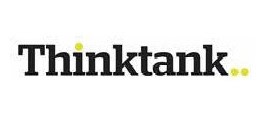
Peter Vala, General Manager Partnerships & Distribution, discusses the benefits of writing commercial loans, current market trends, and how Thinktank is helping brokers succeed in this space.
How has the changing economic environment since 2022, slowing economic growth, and higher interest rates impacted the commercial lending space?
While some residential market segments have been adversely affected by the current economic conditions, the commercial lending space has remained relatively stable especially for properties situated in the small to medium size category. Opportunities are still available to fund purchases in this changing market, with solid transaction activity in the industrial and office sectors through to specialised areas including boarding houses, student accommodation and car yards.For example, demand for industrial properties such as warehouses and storage facilities continues to rise and outstrip supply. We are also seeing healthcare and childcare related properties as well as suburban strata offices perform well as flexible work practices continue to evolve. Even retail, where demand in many urban and CBD areas has been impacted by reduced foot traffic, has seen places like suburban retail outlets and local neighbourhood shopping strips fare quite well.In sectors where finance demand for new commercial purchases has diminished slightly, it has been replaced with refinances, equity release, restructures and SMSF transactions.Thinktank publishes its Monthly Market Focus with our own property outlook that summarises how the various residential and commercial segments are performing across Australia. You can access these reports at: https://bit.ly/41PSufb
What trends are we currently seeing in commercial lending as a result of this change? What challenges are we seeing?
Rising interest rates, increased competition and economic uncertainty are combining to encourage borrowers to reevaluate their financial position, and in many cases to looking at the alternatives offered by the non-banks suggested by their brokers. This is particularly the case for the self-employed looking to improve cashflow by reducing their monthly repayments.We offer 30-year loan terms regardless of whether borrowing for commercial, SMSF or residential, enabling borrowers to adjust their repayments to more sustainable levels. We are also not restricted by red tape and on-going covenant reporting requirements, providing greater certainty and peace of mind during a period of economic uncertainty. We take a holistic view when workshopping a lending scenario and try to simplify the whole process by having no WAULT (weighted average unexpired lease term) or WALE (weighted average lease expiry) requirements, no annual reviews, or ongoing revaluations. We have also observed an increase SMSF LRBAs (Self-Managed Super Fund loans). These solutions offer greater asset protection and meet the needs of those investing in property under a tax effective structure, as recommended by their qualified financial advisers.
There is a common trope that commercial lending is time consuming and requires a lot of experience. Is this true and if not, how does Thinktank help brokers overcome the barriers to entry? Any other advice?
The simple answer is commercial lending is a highly effective and achievable way for a broker to strengthen and grow their business. The transition to commercial is made even easier with the support of a specialised lender such as Thinktank that is with the broker from start to finish to help set up and settle each and every loan transaction.It is important to note that commercial lending is a very broad term and spans simple property transactions through to complex cashflow balance sheet lends. In terms of experience and time required, straightforward commercial property purchases, refinances, restructures and SMSFs are comparable to preparing a residential loan for a self-employed individual. Additional time may be required for more complex solutions and to gain an in depth understanding of the borrower’s business operations and objectives. However, by forming these deeper and broader relationships with commercial clients, brokers open up greater opportunities for repeat and referral business. Exploring commercial solutions with existing residential clients is another way to grow business and improve retention. Many of these clients will have greater financial needs as rates continue to rise and the economy changes gears. To support and educate brokers, Thinktank runs statewide in-person and online education sessions to upskill in commercial and SMSF lending. These sessions take brokers through every step of the process. In addition, our trusted team of Relationship Managers (RMs) work hand in hand with the broker from scenario and workshopping an application right through to settlement.
There are no minimum volume or experience requirements to become a Thinktank accredited broker in commercial lending.
How can brokers protect their business, position it for growth, and take advantage of the opportunities available in the market?
It is definitely worth repeating, the benefits of writing commercial loans are numerous. For one, it helps to diversify a broking business, and mitigate against revenue concentration risk and economic uncertainties over the long-term.
It also paves the way for more opportunities with both existing and new clients by providing a greater range of services and capabilities that builds client trust and dependence. In this way, brokers can enhance the support and breadth of solutions they can offer, deepening the client relationship and building greater client satisfaction and retention.
Any new products you’d like to introduce?
Currently Thinktank have a Combination Deal Application promotion. This offer allows brokers to complete a combined residential and commercial loan application in one simple process with simplified and discounted fees. Brokers are encouraged to contact their Thinktank Relationship Manager or Commercial Account Manager to find out more.

